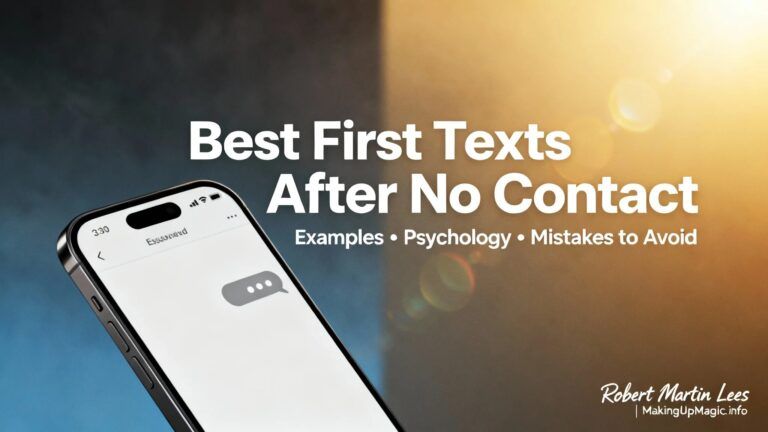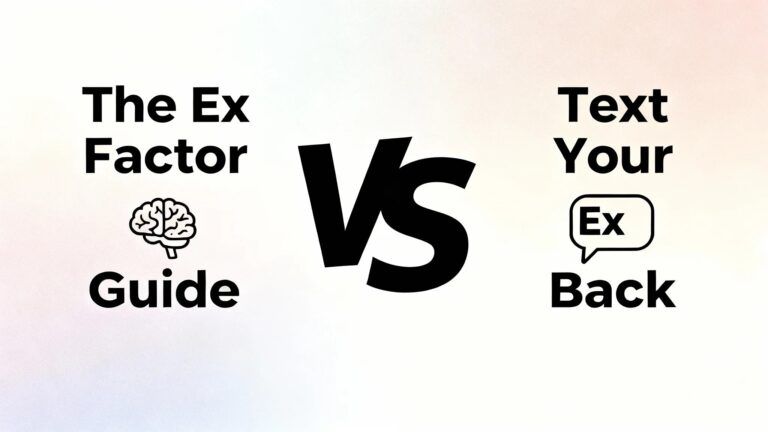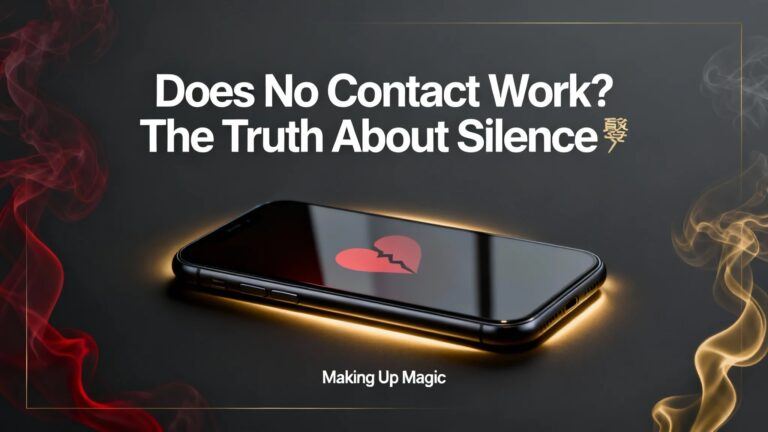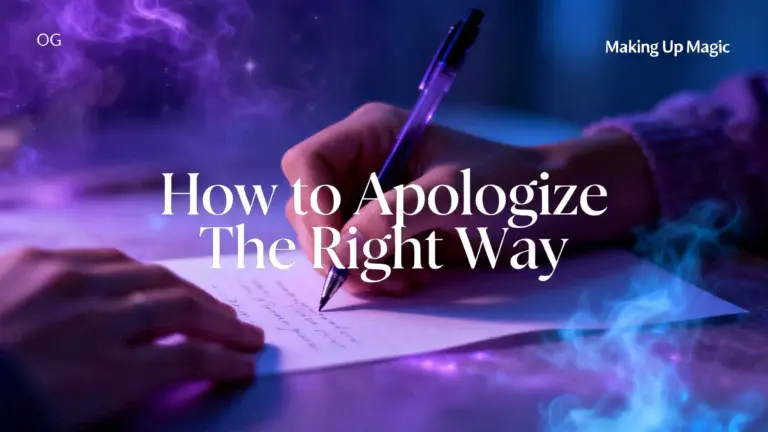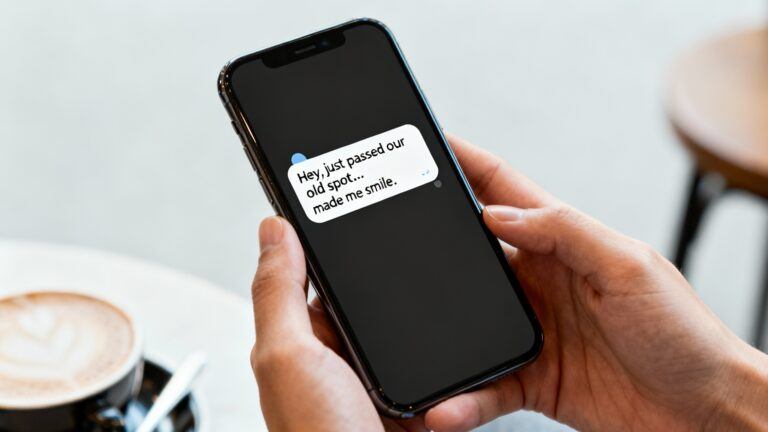You’ve been disciplined. You’ve resisted every urge to check their social media, to text them, to call. You are in the middle of a strict period of No Contact, rebuilding your value and your life. And then it happens.
BUZZ.
Your phone lights up. It’s their name. Your heart plummets into your stomach. A wave of panic, confusion, and maybe even hope washes over you. What does it mean? What do you do? Your response in this single moment can either validate all the hard work you’ve done or erase it in an instant.
This is not a random event. This is a test. This guide will give you the exact framework to analyze their message and respond in a way that keeps your power, communicates high value, and helps you pass their test with flying colors.
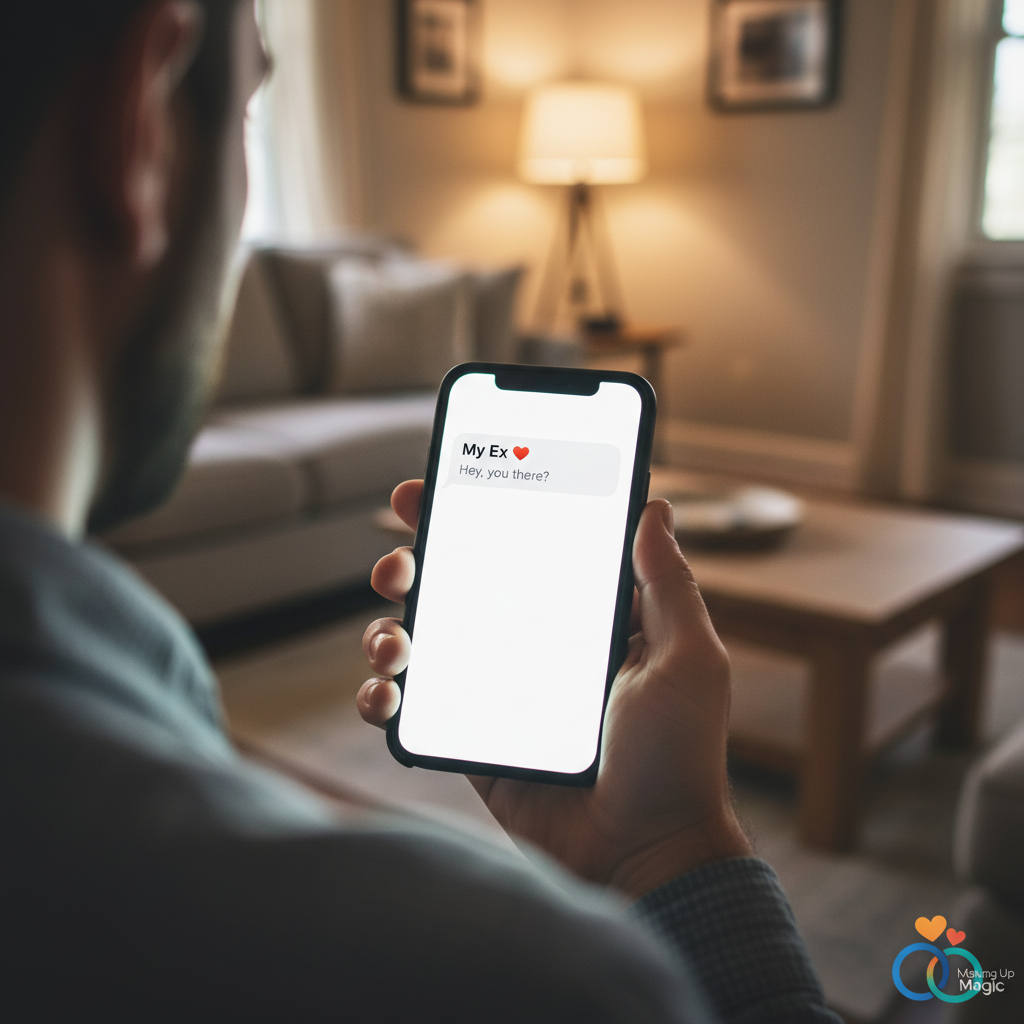
First, Take a Breath. Do Not Respond Immediately.
Your first instinct is to reply instantly. Don’t. Your mind is currently flooded with emotion, not logic. Responding from a place of panic is the fastest way to say the wrong thing.
Put the phone down. Walk away for at least an hour, preferably longer. Let the initial emotional shock subside. Your power right now comes from your ability to be calm, collected, and strategic. An immediate response signals neediness; a delayed response signals you have a life and they are not your priority. This pause is your first move, and it’s a powerful one.
The 3-Question Test: Analyze Their Motive
Not all contact is created equal. Before you even think about what to say, you must become a detective and analyze the type of message they sent. This will tell you everything you need to know about their intentions.
Question 1: Is it a “Low-Effort” Breadcrumb?
This is the most common type of contact. It’s a lazy, low-investment text designed to see if you’re still on the hook. It requires zero emotional vulnerability from them.
- Examples: “hey”, “sup”, “what’s up?”, a meme, a random emoji, a like on an old photo.
Question 2: Is it a “Logistical” Text?
This type of text seems practical on the surface, but it’s often a disguised attempt to open a line of communication. It’s about something practical, like belongings or shared responsibilities.
- Examples: “Hey, do you still have my blue hoodie?”, “When can I get the rest of my stuff?”, “Did you pay the phone bill?”
Question 3: Is it a “High-Effort” Emotional Bid?
This is the rarest and most significant type of contact. It shows they’ve been thinking about you, are feeling emotional, and are willing to be vulnerable. It takes real effort.
- Examples: “I was listening to our song and it made me miss you.”, “I’m sorry for how things ended.”, a long paragraph explaining their feelings, asking a deep question about your life.
Your Strategic Response (Based on the Test)
Once you’ve identified the type of text, your response becomes clear. Your goal is to mirror their effort and maintain your power.
How to Handle a Low-Effort Breadcrumb (The Power of Silence)
Your Response: Ignore it.
That’s it. Do not reply. A low-effort text does not deserve a response. By ignoring it, you are sending a powerful message: “My attention must be earned, and this is not enough.” It forces them to either put in more effort or go away. Either outcome is a win for you.
How to Handle a Logistical Text (Be Polite, Brief, and Firm)
Your Response: Be an adult, solve the problem, and end the conversation.
Do not use this as an opportunity to talk about the relationship. Be polite, direct, and brief. Your tone should be friendly but detached, like you’re coordinating with a coworker.
- Example: If they ask, “When can I get my stuff?”, you reply, “I can leave it on the porch for you tomorrow between 1-3pm. Hope you’re well.”
This shows you are mature and cooperative, but not interested in idle chit-chat. You solve the problem and close the loop.
How to Handle a High-Effort Bid (The Calm, Measured Reply)
Your Response: Wait, then reply with a calm, positive, and short message.
This is the only type of message that warrants a real response. But you must still be careful. Wait several hours before replying. When you do, your message should be:
- Positive: Acknowledge their message in a warm way.
- Short: Do not send a novel back. Keep it to one or two sentences.
- Non-Committal: Do not immediately agree to meet up or have a long phone call.
- Example: If they say, “I was listening to our song and it made me miss you,” you wait, then reply, “That’s nice to hear. I have good memories of that song too. Hope you’re doing well.”
This response is perfect. It’s warm and validating, but it gives away no power. It puts the ball back in their court and forces them to lead the conversation if they want it to continue.
The Biggest Mistake to Avoid After They Contact You
The single biggest mistake is assuming their text means they want to get back together. It doesn’t. It’s simply a sign that they are thinking of you. Your job is not to jump to conclusions. Your job is to remain the calm, centered, high-value person you have become during No Contact. Let them be the one to pursue, to ask, and to make their intentions clear. You are the prize.
Confused About What Their Text Really Means?
Every situation is unique. The context of your breakup and the personality of your ex matter. Get a personalized analysis of your situation and a clear recommendation on how to respond.
Take our free 60-second Breakup Clarity Quiz. It will help you decode their message and give you a clear, strategic path forward.
Frequently Asked Questions
Q: Does it reset my No Contact period if I reply?
A: Technically, yes. But it’s more nuanced than that. If you follow the strategic responses outlined above (ignoring low-effort texts or giving a brief, polite reply to high-effort ones), you maintain your power. The goal of No Contact isn’t just silence; it’s re-establishing your value. A powerful, strategic reply can actually enhance your value more than silence in some cases.
Q: What if they call me instead of texting?
A: Do not answer. Let it go to voicemail. A surprise phone call puts you on the spot and gives them control. By letting it go to voicemail, you regain control. You can listen to their message, analyze their motive using the same 3-question framework, and decide if and how you want to respond via text.
Q: My ex contacted me, but it was angry and negative. What do I do?
A: Do not engage. Any response to anger will only fuel the fire. An angry text is a sign they are still emotionally invested, but it’s not a healthy or productive opening. Ignoring it is your only high-value move. Do not get pulled back into drama.

